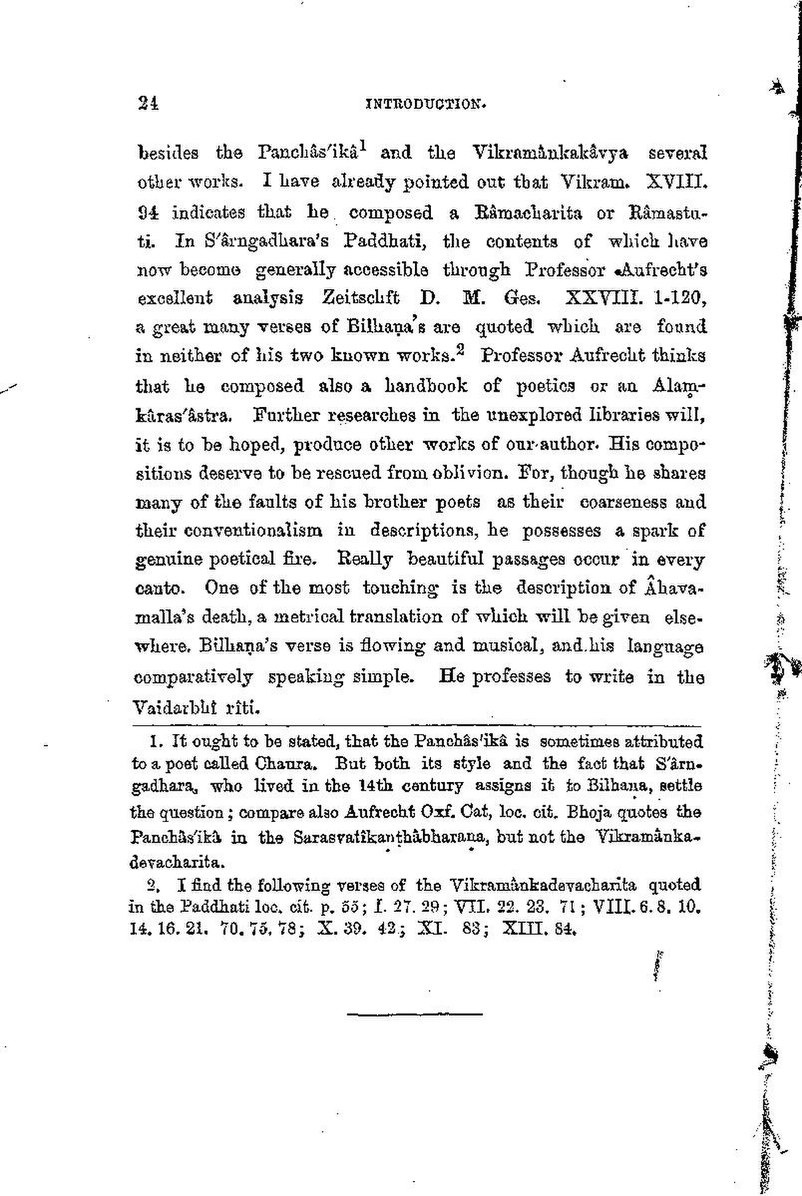24
INTRODUCTION.
besides the Panchâs'ikâ¹ and the Vikramankakâvya several
other works. I have already pointed out that Vikram. XVIII.
94 indicates that he composed a Râmacharita or Râmastu-
ti. In S'ârngadhara's Paddhati, the contents of which have
now become generally accessible through Professor Aufrecht's
excellent analysis Zeitsclift D. M. Ges. XXVIII. 1-120,
a great many verses of Bilhana's are quoted which are found
in neither of his two known works.2 Professor Aufrecht thinks
that he composed also a handbook of poetics or an Alam-
karas'astra. Further researches in the unexplored libraries will,
it is to be hoped, produce other works of our author. His compo-
sitions deserve to be rescued from oblivion. For, though he shares
many of the faults of his brother poets as their coarseness and
their conventionalism in descriptions, he possesses a spark of
genuine poetical fire. Really beautiful passages occur in every
canto. One of the most touching is the description of Ahava-
malla's death, a metrical translation of which will be given else-
where. Bilhana's verse is flowing and musical, and his language
comparatively speaking simple. He professes to write in the
Vaidarbht rîti.
1. It ought to be stated, that the Panchâs'ikâ is sometimes attributed
to a poet called Chaura. But both its style and the fact that S'ârn-
gadhara, who lived in the 14th century assigns it to Bilhana, settle
the question; compare also Aufrecht Oxf. Cat, loc. cit. Bhoja quotes the
Panchasika in the Sarasvatikanthabharana, but not the Vikramanka-
devacharita.
2. I find the following verses of the Vikramankadevacharita quoted
in the Paddhati loc. cit. p. 55; I. 27. 29; VII. 22. 23. 71; VIII. 6. 8. 10.
14. 16. 21. 70. 75, 78; X. 39. 42; XI. 83; XIII. 84.
पृष्ठम्:विक्रमाङ्कदेवचरितम् - बिल्हण.pdf/२८
एतत् पृष्ठम् अपरिष्कृतम् अस्ति

